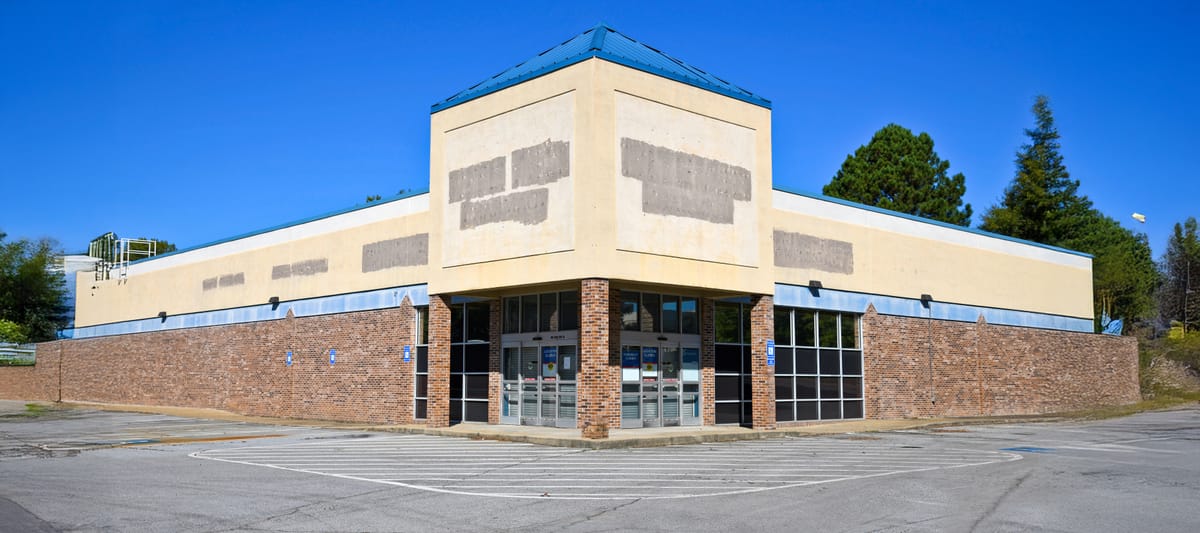How Auctions Reduce Environmental Waste in Business Closures

When businesses close their doors, the fate of millions of dollars worth of equipment hangs in the balance. Too often, perfectly functional machinery, furniture, and technology end up in landfills—contributing to a growing environmental crisis. However, there's a sustainable solution that's gaining momentum: equipment auctions.
At Grafe Auction, we've witnessed firsthand how business liquidation auctions transform potential waste into valuable resources for other organizations. This approach not only makes financial sense but also creates measurable environmental benefits that align with today's sustainability goals.
The Hidden Environmental Cost of Business Closures
Business closures happen regularly across the United States, with Bureau of Labor Statistics data showing that 21.5% of private sector businesses fail in their first year, and only 34.7% of businesses created in 2013 were still operating in 20231. Each closure generates substantial amounts of equipment, furniture, and technology that require disposal decisions.
The traditional approach to business liquidation often involves demolition and disposal. Commercial dumpsters fill with items that could serve other businesses for years to come. Restaurant equipment worth tens of thousands of dollars gets scrapped. Office furniture that could outfit an entire startup ends up in construction and demolition waste streams.
Equipment Auctions: A Circular Economy Solution
Business liquidation auctions represent a powerful alternative to the linear "take-make-dispose" model. Instead of equipment reaching the end of its lifecycle prematurely, auctions create a circular economy where items continue generating value.
When a supermarket chain closes a location, their commercial refrigeration units don't need to become scrap metal. Through equipment auctions, these same units can serve independent grocers, restaurants, or other food service businesses. This extended lifecycle prevents tons of materials from entering waste streams while providing affordable equipment to growing businesses.
Real Impact: The Numbers Behind Auction Sustainability
The environmental benefits of selling business equipment through auctions are substantial. Research consistently shows that reusing equipment rather than manufacturing new items creates significant environmental benefits:
- Manufacturing Emissions Reduction: Buying used equipment instead of new can dramatically reduce greenhouse gas emissions compared to manufacturing replacement items
- Resource Conservation: Restaurant equipment auctions can prevent substantial tonnage of materials from entering landfills
- Energy Savings: Reusing commercial kitchen equipment saves considerable energy compared to manufacturing new equipment
These benefits multiply across the thousands of business liquidation auctions conducted annually nationwide.
Sustainable Business Practices Through Strategic Liquidation
Forward-thinking companies are recognizing that responsible business closure practices enhance their environmental credentials. When municipalities or corporations face facility consolidations, choosing equipment auctions over traditional disposal methods demonstrates measurable commitment to sustainability.
Municipal Building Liquidation Example
Municipal organizations choosing equipment auctions over traditional disposal methods can achieve impressive results. When government entities consolidate facilities, the auction approach typically delivers:
- High diversion rates from landfills
- Significant value recovery that can return to municipal budgets
- Sustainability reporting benefits for waste reduction goals
This approach allows municipalities to meet zero-waste objectives while supporting local businesses seeking affordable office equipment.
Environmental Benefits Across Industries
Different types of business closures create varying environmental impacts through equipment auctions:
Restaurant and Food Service Liquidations
Commercial kitchen equipment has particularly high environmental value when reused. Stainless steel prep tables, commercial ovens, and refrigeration systems require significant energy and raw materials to manufacture. Selling restaurant equipment through auctions prevents these energy-intensive items from becoming scrap metal.
Professional kitchen equipment often operates reliably for decades when maintained properly. Commercial mixers, ovens, and refrigeration systems that cost thousands of dollars new can serve multiple restaurant owners throughout their extended lifecycle, preventing the environmental impact of manufacturing multiple replacement units.

Retail Store Fixture Auctions
Retail closures generate enormous volumes of displays, shelving, and point-of-sale systems. Store fixture auctions allow new retailers to outfit their spaces without purchasing new materials. This approach significantly reduces the demand for new plastic and metal manufacturing while keeping functional fixtures in circulation.

Office Equipment and Technology
Business office liquidations present unique environmental opportunities. Selling business equipment like cubicles, desks, and filing systems prevents furniture manufacturing emissions while providing affordable solutions for growing companies. Even older technology equipment can find new life in educational institutions or nonprofit organizations.

Supporting Green Business Practices
Companies prioritizing environmental responsibility increasingly view their closure strategy as an extension of their sustainability commitments. Equipment auctions align with several established green business frameworks:
Carbon Footprint Reduction
By choosing auctions over disposal, businesses directly reduce their scope 3 emissions associated with waste generation. This reduction can be quantified and included in corporate sustainability reporting, providing measurable environmental impact data.
Circular Economy Participation
Selling used restaurant equipment, office furniture, and industrial machinery keeps materials in productive use longer. This approach supports circular economy principles by maintaining the highest value of products and materials for as long as possible.
Community Environmental Benefit
Business liquidation auctions create local environmental benefits by providing equipment to nearby businesses. This reduces transportation emissions compared to shipping new equipment from distant manufacturing facilities. Local buyers often transport items in smaller, more efficient vehicles rather than large commercial delivery trucks.
The Municipal Perspective: Public Sector Sustainability
Municipalities face increasing pressure to demonstrate environmental leadership while managing tight budgets. Equipment auctions offer a solution that addresses both concerns simultaneously.
When public facilities close or consolidate, selling business equipment through auctions generates revenue while supporting municipal sustainability goals. School districts closing buildings can auction educational furniture and technology. Government offices can responsibly liquidate furniture and equipment during downsizing efforts.

Waste Reduction Metrics
Forward-thinking municipalities track their auction activities as part of waste reduction reporting. Metrics include:
- Tons diverted from landfills through equipment sales
- Revenue generated from business liquidation auctions
- Carbon emissions avoided through equipment reuse
- Local businesses supported through affordable equipment access
Maximizing Environmental Impact Through Strategic Auction Planning
To achieve optimal environmental benefits from business liquidation, companies should consider several factors:
Timing and Preparation
Early auction planning allows for better environmental outcomes. Rather than rushing closure decisions, companies benefit from systematic evaluation of their equipment and fixtures. This preparation time enables proper cleaning, maintenance, and documentation that increases resale value while extending equipment lifecycles.
Complete Facility Assessment
Comprehensive assessment identifies all reusable materials, not just obvious equipment. Light fixtures, flooring materials, and even architectural elements can find new life through specialized auctions. This thorough approach maximizes waste diversion while creating unexpected value recovery.
Partnership with Experienced Auction Companies
Working with established business liquidation auction companies ensures professional handling that maximizes both environmental and financial outcomes. Experienced auctioneers understand which items have strong resale markets and can guide businesses toward the most sustainable disposal methods for their specific equipment.
Technology's Role in Sustainable Liquidation
Modern auction platforms enhance the environmental benefits of business liquidation by expanding market reach. Online equipment auctions connect sellers with buyers across broader geographic areas, increasing the likelihood that items find new productive uses rather than disposal.
Digital marketing allows targeted outreach to businesses specifically seeking particular types of equipment. A closing medical facility can connect directly with expanding healthcare providers. Restaurant equipment auctions can reach culinary entrepreneurs starting new ventures.
Conclusion: Choosing Environmental Responsibility
Business closures present a critical decision point with lasting environmental consequences. Companies can choose between contributing to growing waste streams or participating in sustainable solutions that benefit their communities and the environment.
Equipment auctions offer a clear path toward environmental responsibility that also makes financial sense. By selling business equipment rather than disposing of it, companies demonstrate genuine commitment to sustainability while often recovering significant value from their assets.
At Grafe Auction, we're proud to facilitate these environmentally beneficial transactions every day. Whether you're planning a business closure, facility consolidation, or simply upgrading equipment, consider the environmental impact of your decisions.
Ready to explore sustainable liquidation options for your business? Visit our upcoming auctions to see how equipment auctions create value while protecting the environment. Our experienced team can help you develop a liquidation strategy that aligns with your sustainability goals while maximizing asset recovery.
Contact us today to learn how your business closure can contribute to a more sustainable future through responsible equipment liquidation.
Sources
- U.S. Bureau of Labor Statistics. "34.7 percent of business establishments born in 2013 were still operating in 2023." The Economics Daily, 2024. https://www.bls.gov/opub/ted/2024/34-7-percent-of-business-establishments-born-in-2013-were-still-operating-in-2023.htm
- LendingTree. "Percentage of Businesses That Fail — and How to Boost Chances of Success." April 2025. https://www.lendingtree.com/business/small/failure-rate/
- U.S. Environmental Protection Agency. "Construction and Demolition Debris: Material-Specific Data." November 2024. https://www.epa.gov/facts-and-figures-about-materials-waste-and-recycling/construction-and-demolition-debris-material




